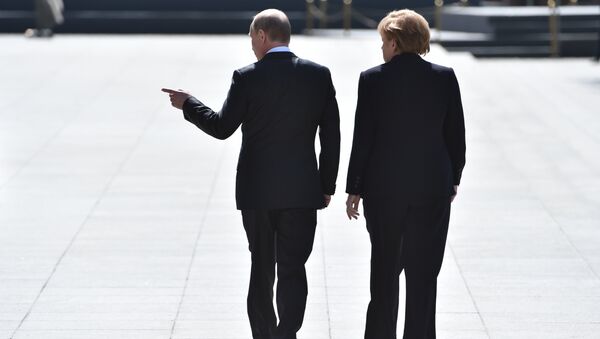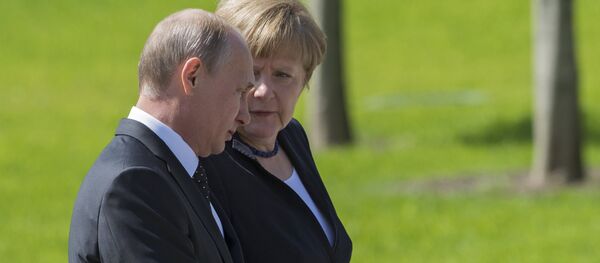"The visit is significant for Merkel who has positioned Germany not simply as the leading country in the European Union, but also as a nation which represents democratic values in the West and the world and which has to play a greater part in international relations, like Russia and the US. Both sides are counting on promoting the Minsk agreements. It is important to Germany to achieve progress to show that it could be a successful mediator in foreign affairs. For its part, Moscow wants Germany to become more sympathetic toward Russia's stance and apply pressure on Ukraine," she explained.
Germany appears to have also set its eyes on Syria. As a result, Berlin does not want the Syrian issue to be resolved solely by Russia and the United States with minimal input from the European Union.
"Germany is paying close attention to what is happening in Syria and beyond. Particularly if there is a possibility of the United States and Russia reaching an agreement, without any participation from Europe and Berlin," the analyst said. "Taking Germany's foreign policy ambitions into account, the visit could be spun as a foreign policy success ahead of the elections."
"The policy of sanctions, which Berlin favors, goes against Germany's economic interests. Berlin is contemplating the moves it could make to weaken this influence, if not counterbalance it. Berlin has long pursued a binary strategy in this respect," she said.
Timoshenkova suggested that Putin and Merkel could find common ground during the visit slated for May 2. They know each other well, meaning that talks could be extremely frank, she added, saying that even if no breakthrough is achieved, the visit would still become symbolic.
Never miss a story again — sign up to our Telegram channel and we'll keep you up to speed!


